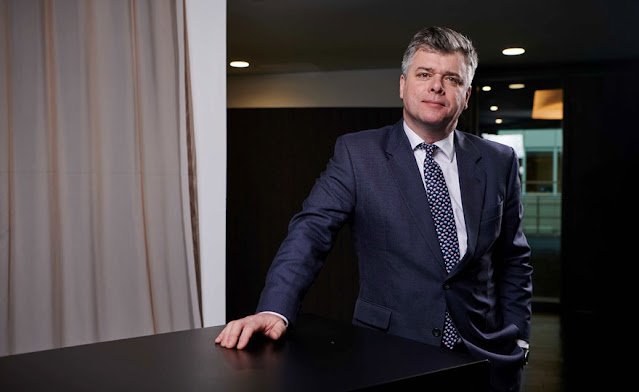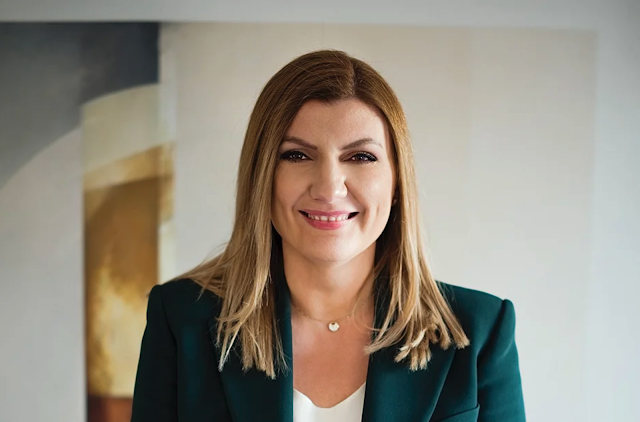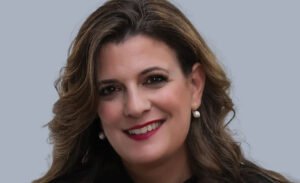| Panos Theodossopoulos, CEO, METIS |
METIS with its expertise and technological competence develops innovative solutions that meet the needs of multiple departments, roles and management levels in a shipping company. In this interview we host Mr. Panos Theodossopoulos, CEO of METIS with whom we discuss all the latest developments.
What sets METIS apart from other companies in the industry?
From its inception, METIS positioned itself innovatively in the market, addressing the entire spectrum of what we call digitalization in shipping. It covered the whole range from automated data collection from the vessel all the way to analysis based on market needs, principles of naval architecture, laws of physics, and with the use (when required) of advanced machine learning and artificial intelligence techniques. Recent mergers and acquisitions in the maritime tech market aimed at creating similar groups that cover the whole spectrum of needs required by shipping companies, confirm the validity of our initial strategy.
What needs do the analyses you produce cover, how do they assist a shipping company, and in what roles are your solutions aimed?
In general, our solutions help in analyzing and understanding past vessel performance, monitoring current operational status in real-time, and predicting future behavior for the whole fleet. As for the areas they touch upon, the spectrum is quite broad, but they focus on the key axes of optimizing the operational performance of vessels, reducing fuel consumption and consequently costs, as well as effectively managing environmental footprint and regulatory obligations, especially regarding emissions.
Some indicative examples include:
• Monitoring, analyzing, and predicting consumption during any vessel voyage and under any weather conditions.
• Scheduling hull/propeller cleaning based on actual consumption increase.
• Monitoring and predicting pollutants and carbon footprint based on regulations.
• Monitoring and analyzing charter party performance.
• Scheduling and optimizing voyages based on vessel condition, weather, and carbon footprint.
• Monitoring and analyzing main engine and generator operation.
We address the needs of both technical and performance departments, as well as those of operations, chartering and commercial departments. We also cater to the needs of multiple levels of management, as different information is required by the technical director, fleet manager, superintendent, and obviously, the CEO or the Owner.
I understand that the use of reliable data is paramount for conducting any analysis. How does METIS handle this issue, and what is the importance of data acquisition frequency?
I’ll start by saying that METIS has been pioneering the use of automatic collection of high-frequency signals from ship operations since its inception. This way, we managed to minimize human error in data collection and recording as well as to reduce the workload for the crew.
Of course, sensors and data transmission can introduce errors as well, so we have developed a very detailed and rigorous process for monitoring the availability of signals in regard to the timely reception and the completeness, as well as the validity and quality of measurements received. Having reliable data is the most important factor for any kind of analytics. The other significant factor is the frequency of the data reception since, as a general rule, the more data points we have available the more detailed and advanced analytics we can provide.
Can you share a recent success story where METIS helped a client achieve their goals?
Certainly, there are many success stories, but if I had to highlight a few recent ones, I would mention the case of a large client of ours, for whom we monitor the entire fleet . Recently, we assisted them in submitting their annual EU MRV and IMO DCS reports (for fuel consumption and emissions) based on automatic data collection and analysis from the METIS platform. This is an example of how we help our customers ensure their regulatory compliance, having full control while reducing time and effort.
Another case involves an off-shore ship (SOV) management company serving floating wind farms. There, based on the real-time condition of the vessels and the weather, they optimize the order in which they schedule visits to each wind turbine and are able to offer better services to their clients.
We also often have cases where our clients use data and analysis from our platform for communication purposes with charterers and dispute or resolve cases regarding the compliance of the attained performance of a vessel versus the agreed charterparty terms.
Lately, our clients frequently utilize our platform to assess the performance of Energy Saving Devices and the vessel’s overall performance by comparing conditions before and after their installation.
What do you think about Artificial Intelligence? What have we seen so far in shipping and what should we expect in the future? Is it a panacea or is it a buzzword?
My opinion on Artificial Intelligence is that, especially at the onset of digital technologies entering the shipping industry, the term “artificial intelligence” was overused, perhaps even exhausted.
The truth is, it’s neither just a buzzword nor a panacea. It’s another – very powerful – tool we use in leveraging and analyzing the data we collect.
I often say that the optimal conclusion and consequently the value we provide to our clients should follow the triptych: (1) principles of physics and engineering (as we deal with very complex physical phenomena), (2) human knowledge and experience, and finally (3) advanced analysis which also includes the use of machine learning techniques and artificial intelligence.
Lastly, I’d like to mention that METIS, from its beginning, experimented with using AI in various domains one of which is as an additional means of interfacing with users. We introduced an industry-first maritime chatbot for user-to-platform communication, which we are currently re-evaluating to leverage new generative AI technologies and large language models.
Is there an opportunity for cooperation with other companies that offer similar or related services? What is your position on this matter?
While we have great faith in the strength of our team, we recognize that we cannot and do not wish to specialize in all possible fields or cover all the needs of our clients. Therefore, collaborations within the industry are both legitimate and beneficial, and we already engage in various partnerships.
This mentality is also reflected in the architecture of our platform which can act as an intelligent data hub able to receive or share data to any 3rd party service provider through mulpiple interface options.
Initially, collaborations arose upon client request. However, we have now taken a step further and have already developed a range of partnerships offering complementary services. This way, we enrich our own functionality through collaborations and we strengthen the relationship we build with our clients.
For example, we collaborate with weather forecasting companies, with route optimization services and manufacturers of mechanical equipment to monitor and analyze the operation of their machinery, etc.
Can you refer to current METIS research and development initiatives aimed at developing innovative solutions or improving existing services?
The METIS platform is a dynamic entity that is constantly evolving, both in aspects invisible to the client concerning stability, speed, and system security, as well as in functionality and usability.
Recently, we have placed significant emphasis on improving the user experience to increase productivity, as well as ease of understanding and absorbing information. We are completely redesigning the interface environment, and during the Poseidonia event, we will launch it, presenting the new face of METIS to the market.
Moreover, we are very active in participating in R&D projects, in cooperation with Academic Institutions, shipping companies and other stakeholders both at the national and European levels, on related subjects.
Looking ahead, what emerging trends or technologies is METIS monitoring and how does it plan to adapt its services to address these changes?
Part of our DNA at METIS is to constantly monitor emerging trends and new technologies that are affecting or are going to affect the maritime sector in the future.
The maritime industry has now entered the phase of decarbonization, and this is a dominant factor in how it will operate from now on. We believe that the use of digital technologies is the “twin” of decarbonization. In this context, and with our goal always being to empower individuals and companies to evolve and work in new, innovative ways in order to achieve their goals, we are commited to be present and supportive in this journey.
New fuels, energy-saving devices, operational optimization are just some of the issues that will concern us and which we are already monitoring.
Additionaly, we believe that the maritime industry is entering a new era characterized by increased transparency needs in its operations, driven by regulatory frameworks, market forces, financial institutions, commercial realities (ESG, etc.), and the technology itself. In this context, with transparency being one of our core corporate values, we strive to help our clients navigate this journey of transparency in the best possible way.













